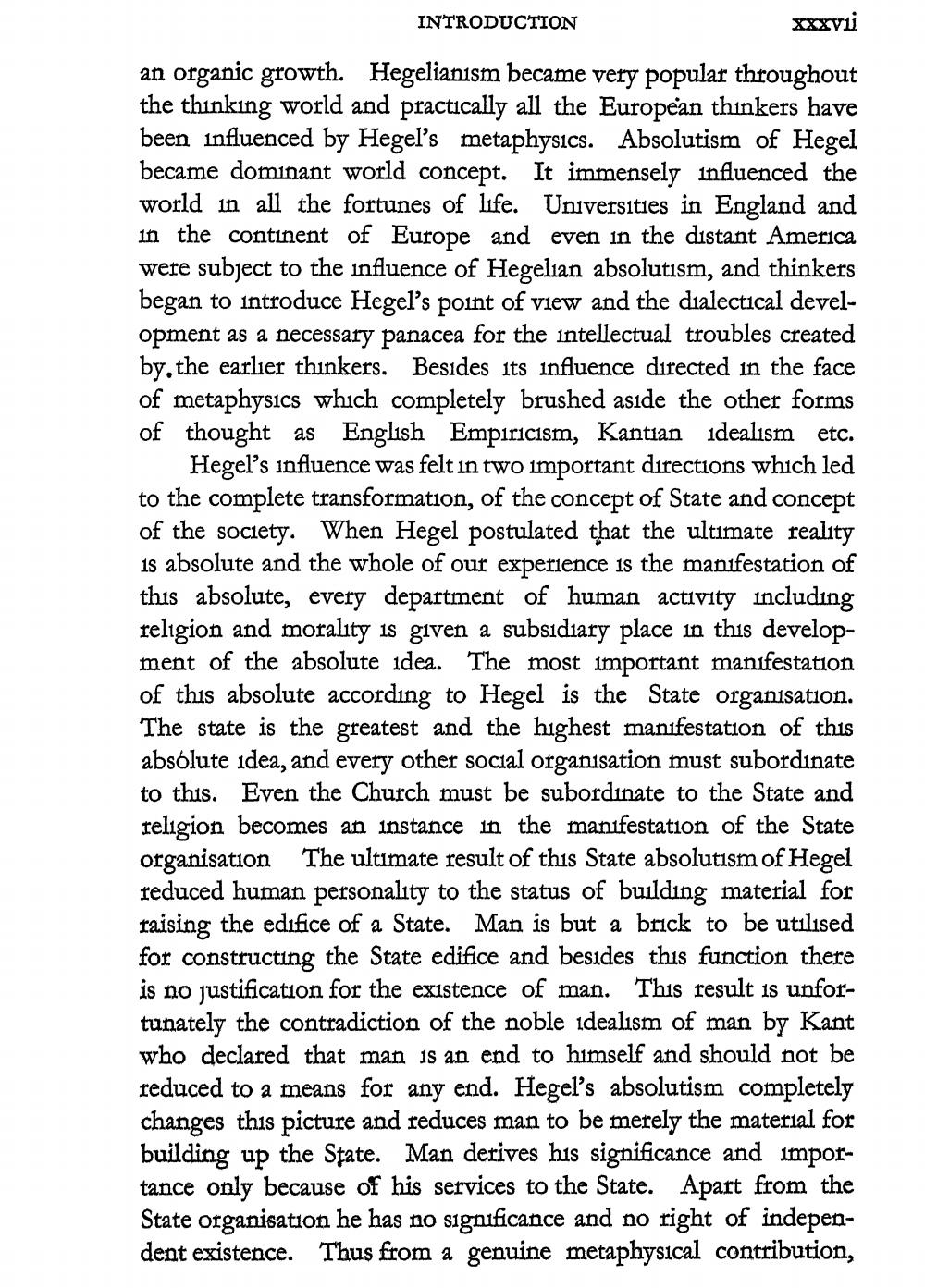________________
INTRODUCTION
XXXVI an organic growth. Hegelianism became very popular throughout the thinking world and practically all the European thinkers have been influenced by Hegel's metaphysics. Absolutism of Hegel became dominant world concept. It immensely influenced the world in all the fortunes of life. Universities in England and in the continent of Europe and even in the distant America were subject to the influence of Hegelian absolutism, and thinkers began to introduce Hegel's point of view and the dialectical development as a necessary panacea for the intellectual troubles created by, the earlier thinkers. Besides its influence directed in the face of metaphysics which completely brushed aside the other forms of thought as English Empiricism, Kantian idealism etc.
Hegel's influence was felt in two important directions which led to the complete transformation, of the concept of State and concept of the society. When Hegel postulated that the ultimate reality is absolute and the whole of our experience is the manifestation of this absolute, every department of human activity including religion and morality is given a subsidiary place in this development of the absolute idea. The most important manifestation of this absolute according to Hegel is the State organisation. The state is the greatest and the highest manifestation of this absolute idea, and every other social organisation must subordinate to this. Even the Church must be subordinate to the State and religion becomes an instance in the manifestation of the State organisation The ultimate result of this State absolutism of Hegel reduced human personality to the status of building material for raising the edifice of a State. Man is but a brick to be utilised for constructing the State edifice and besides this function there is no justification for the existence of man. This result is unfortunately the contradiction of the noble idealism of man by Kant who declared that man is an end to himself and should not be reduced to a means for any end. Hegel's absolutism completely changes this picture and reduces man to be merely the material for building up the State. Man derives his significance and importance only because of his services to the State. Apart from the State organisation he has no significance and no right of independent existence. Thus from a genuine metaphysical contribution,




